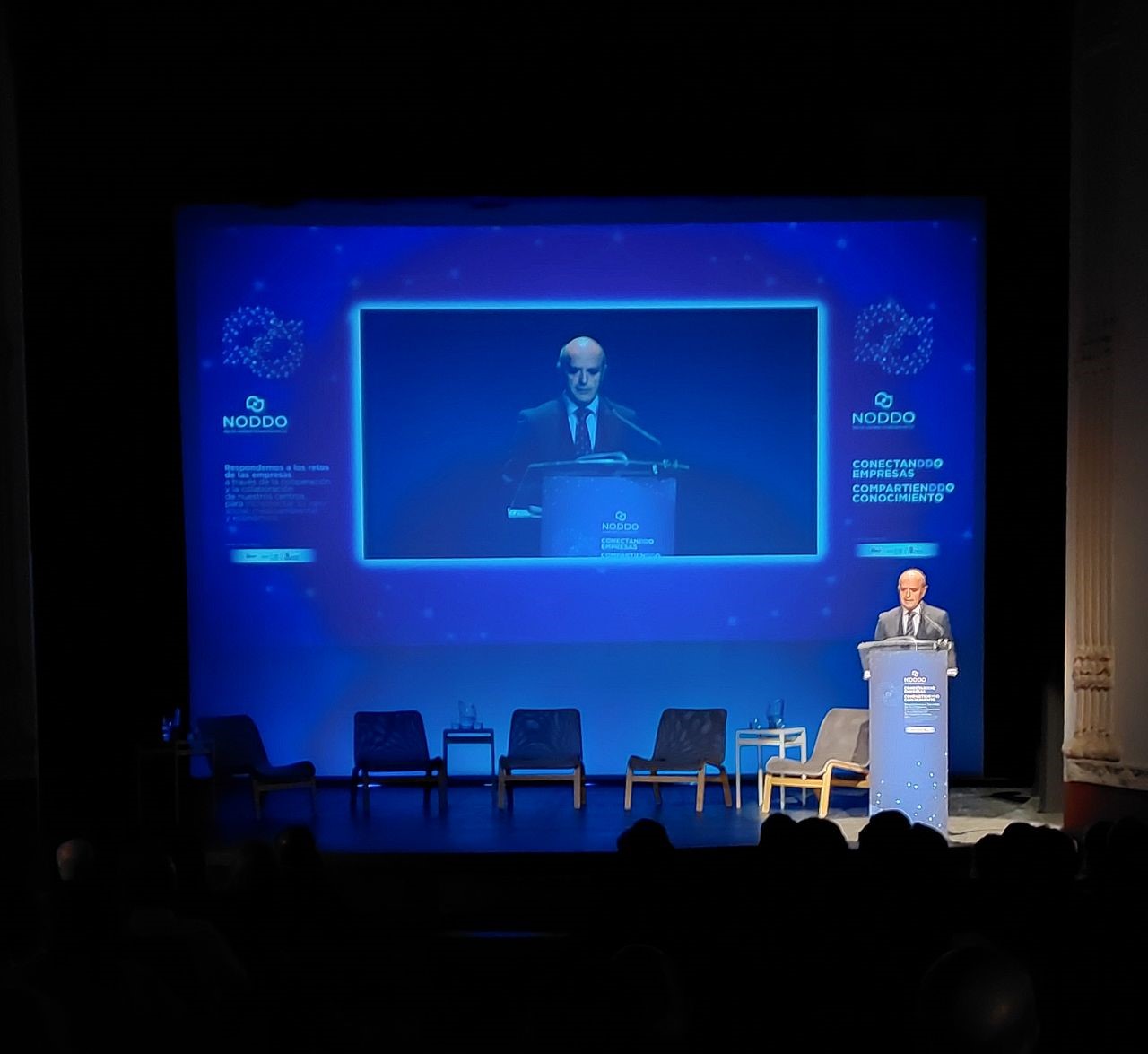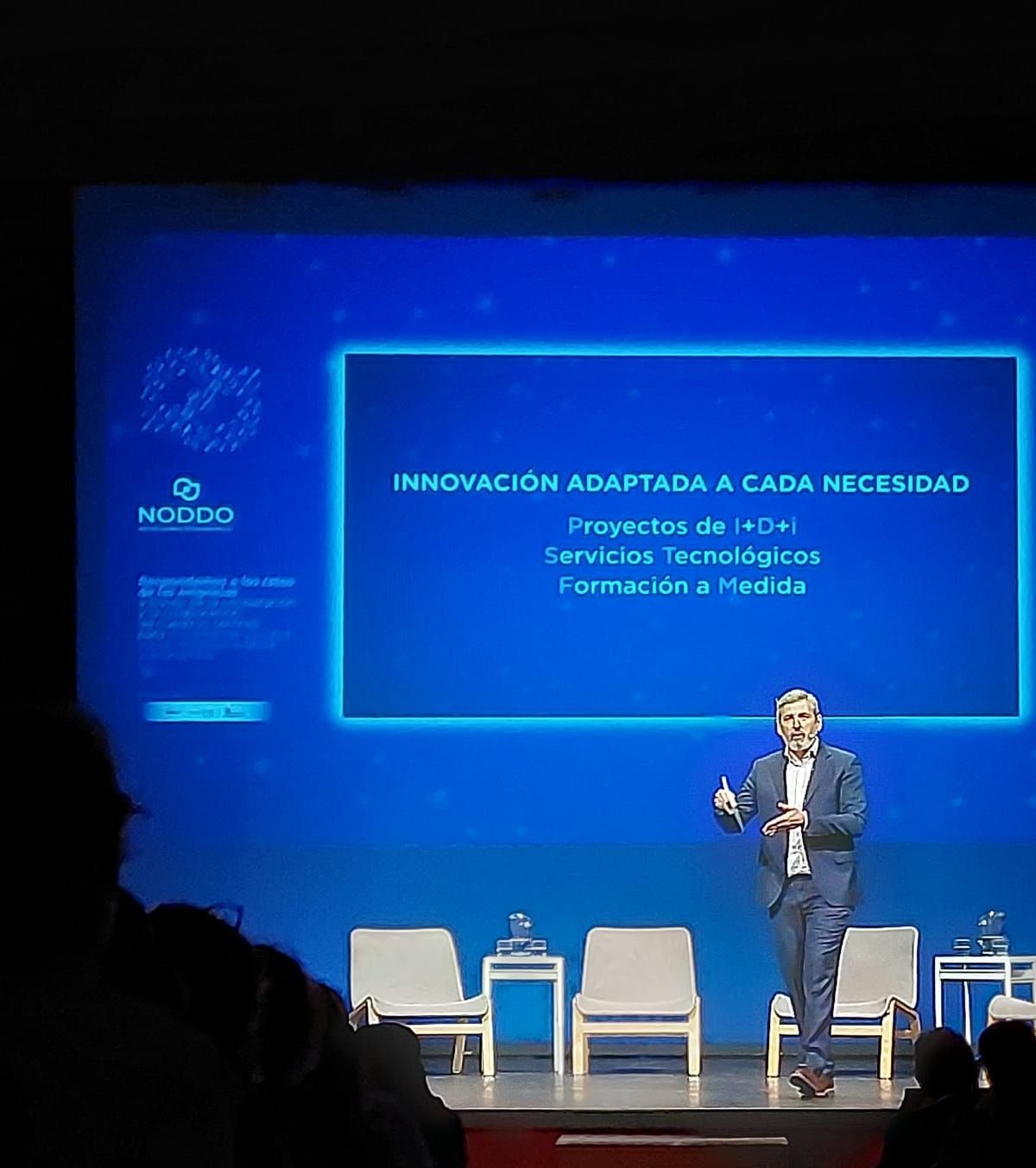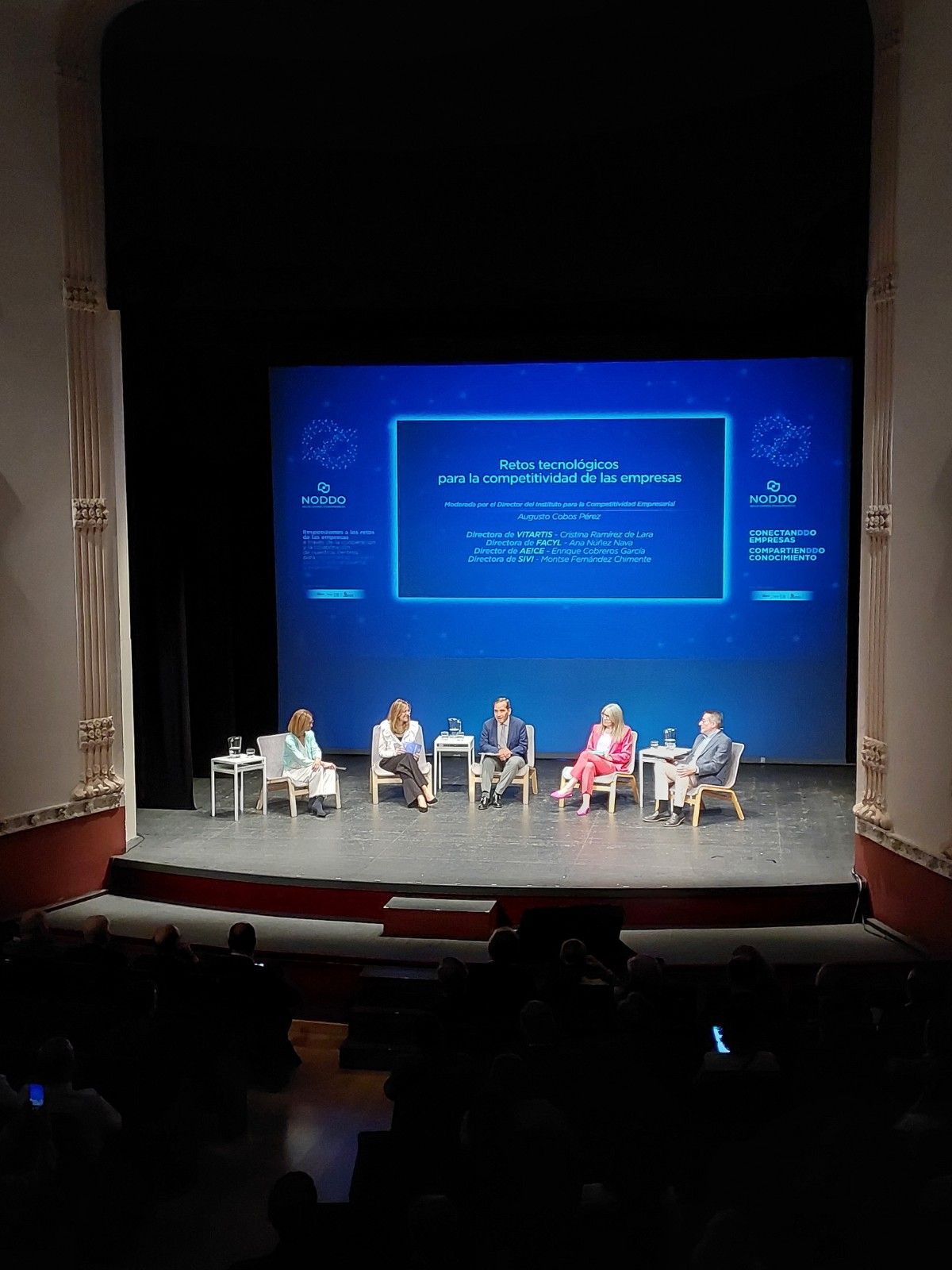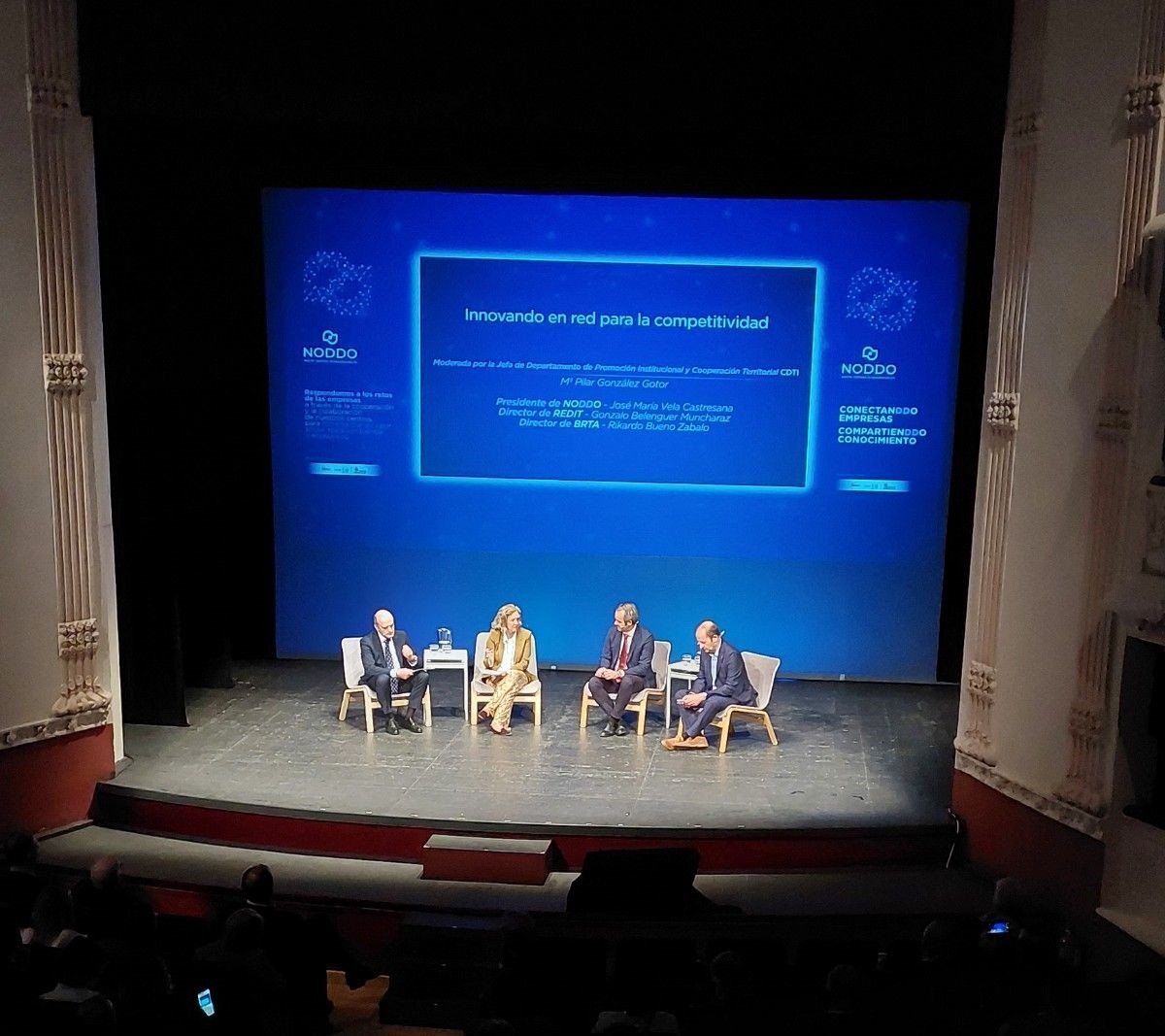Palencia hosts official launch of NODDO, Castilla y Leon Network of Technological Centres
The Network of Technology Centres of Castilla y León, NODDO, a private non-profit organisation that brings together the nine technology centres of Castilla y León and an initiative financed by the Regional Government of Castilla y León through the ICE, the Institute for Business Competitiveness, held its official presentation in Palecia's emblematic venue, the Main Theatre, with over 120 attendees from the world of innovation and technology.

The president of NODDO, José María Vela Castresana, has inaugurated the event, highlighting the trajectory of the technological centres, saying that "NODDO is needed to boost the representation of Castilla y León in national and international forums and to improve its R&D&I. Promoting greater knowledge to industry and society".
Then, the Director of NODDO, Eduardo Andrés Martínez, presented the potential of NODDO, its challenges and opportunities, and the importance of the new network in Castilla y León. Stressing that the technology centres are a reflection of the existing capabilities of Castilla y León, and that the Network will boost the competitiveness and productivity of companies through innovation, in an environment that is evolving and is becoming larger and more complex.

The representatives of AIR INSTITUTE attended the event together with the other technological centres, namely, CARTIF, CESEFOR, CETECE technological centre, CIDAUT, CTME- Miranda de Ebro Technological Centre Foundation, ICAMCYL, ITAGRA and ITCL. NODDO is the main integrating agent of Castilla León in R&D&I, promoted by the Junta de Castilla y León through ICE. NODDO has more than 700 professionals dedicated to innovation, who have created more than 600 R&D&I projects, with revenues of 50 million euros in 2022.
Technological challenges and networked innovation for competitiveness at the launch event
The event featured two round tables in which the technological challenges for the competitiveness of companies, the technological needs for a digital and sustainable economy, and the technological demand of companies through clusters as aggregators of this demand were discussed.
The Director of ICE, Augusto Cobos Pérez, moderated the first roundtable on the technological challenges for the competitiveness of companies, with the participation of the Director of VITARTIS, Cristina Ramírez de Lara, the Director of FACYL, Ana Núñez Nava, the Director of AEICE, Enrique Cobreros García, and the Director of SIVI, Montse Fernández Chimente.

In the second part of the event, the Director of FEDIT, Aureo Díaz-Carrasco, presented his KeyNote on the keys to the success of a Network of Technology Centres of reference, aligned with European objectives. In his insightful presentation and overview, he stressed the need for greater collaboration and networking, as well as the importance of having and consolidating structural funding and long-term vision.
Innovating in the Network for Competitiveness was the second and last roundtable, moderated by the Director of EU programmes and territorial cooperation of CDTI, Mª Pilar González Gotor, with the participation of the President of NODDO, José María Vela Castresana, the Director of REDIT, Gonzalo Belenguer Muncharaz, and the Director of BRTA, Rikardo Bueno Zabalo. In this roundtable we have learned about the experience of other networks and the long process of their construction, the benefits of a consolidated network of centres for competitiveness, internationalisation, and the strategic role of infrastructures, as well as the need for baseline funding and stable commitment from public administrations.

The event ended with the presentation of Helena González-Burón, a specialist in scientific communication, who gave a tour of the highlights of the event with the help of the visual thinker Fernando Abadía.
The event demonstrated the importance of creating a network of collaboration and cooperation between innovation agents, essential to face new challenges and offer the competitive advantages that companies need, thanks to NODDO and the nine technology centres of Castilla y León.